As the sun starts shining, many homesteaders are getting ready to plant their gardens. To make the most out of this season, consider planting some medicinal herbs. Medicinal herbs have many benefits, not only do they prevent sickness, but you’ll experience none of the negative side effects associated with traditional medication. If you’re not quite sure what to plant, here are the ten best medicinal plants for your garden.
#1. Ashwagandha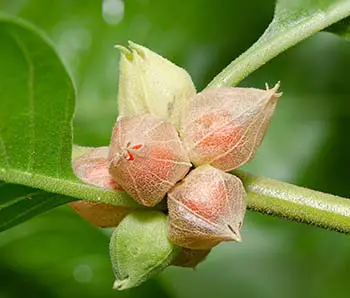
Ashwagandha is also known as Withania somnifera. It’s a plant most commonly associated with Ayurvedic medicine. It’s well-known for its adaptogenic properties which means that it helps the body adapt to stress. There are several health benefits associated with Ashwagandha such as it helps to regulate the immune system, it reduces cortisol levels which helps alleviate stress and anxiety, and it reduces inflammation in the body. Do the following to prepare Ashwagandha as a tea:
- Add 1 teaspoon of dried root Ashwagandha to 1 cup of water
- Boil for 30 minutes
- To make it more flavorful add ginger or cinnamon
- You can also add milk or a plant-based milk
#2. Oregano
Oregano doesn’t only give your food a delicious flavor, it also contains a number of medicinal properties including antioxidant, antimicrobial, and anti-inflammatory properties. All of these are known to improve digestive health, treat skin infections, and relieve respiratory symptoms such as congestion and coughs. Oregano is most effective when used as an oil. Here are the instructions for homemade oregano oil:
- Boil a pot of water and turn the stove off once the water is boiled

- Crush up a handful of oregano leaves
- Place the oregano leaves in a jar
- Fill the jar halfway with coconut oil and seal it with a lid
- Put the jar into the boiling water and leave it to sit for 10 minutes
- Leave the jar on a windowsill for 2 weeks
- Shake the jar every couple of days
- After two weeks, strain the leaves and store the oil in a cool dark place
#3. Lavender
Lavender has a pleasant fragrance, and most people use it as an air freshener. It’s also used a lot in aromatherapy to reduce anxiety, promote relaxation and induce sleep. Lavender is also an effective pain reliever because it lowers inflammatory markers in the body making it a useful natural remedy for conditions such as arthritis and headaches. Lavender makes a fragrant and delicious tea, here are the instructions:
- Boil a small saucepan of water
- Add 4 teaspoons of lavender buds into a tea ball
- Place the tea ball into a teacup
- Pour the water into a tea cup and steep for 10 minutes
#4. Thyme
Thyme is another popular herb used in food but it contains antifungal and antibacterial properties which can help fight respiratory infections such as bronchitis, congestion, and cough. It’s also good for digestive health and helps relieve symptoms such as gas, bloating, and stomach pain. Due to its antimicrobial properties thyme can also help fight gastrointestinal infections. Follow these instructions to make a relaxing cup of thyme tea:
- Boil 1 ½ cups of water in a saucepan
- Remove the saucepan from the stove once the water is boiled
- Add 3 sprigs of fresh thyme to the water and steep for 5 minutes
- Remove the thyme from the water and drink
#5. Sage
Sage contains antimicrobial and antioxidant properties which help support the immune system and protect the body against damage caused by free radicals. Its antibacterial properties help fight inflammation in the throat and mouth which helps alleviate oral infections. Sage can also help reduce menopause symptoms such as night sweats and hot flashes. Here’s how to make sage tea:
- Boil 1 ½ cups of water

- Finely chop 2 tablespoons of fresh sage leaves
- Once the water is boiled, remove the saucepan from the stove
- Add the juice of 1 lemon to the water
- Add the sage leaves to the water and stir to combine
- Cover and leave the ingredients to steep overnight
- In the morning, heat the mixture, strain the leaves, and drink
#6. Peppermint
Peppermint promotes relaxation which helps to relieve stress and anxiety. Chewing on a few leaves not only gives your breath a fresh scent, but its antibacterial properties can help fight oral infections. Peppermint also works well for joint and muscle pain. When inhaled or applied topically, it helps relieve headaches and migraines. You can make your own peppermint oil by doing the following:
- Wash the peppermint leaves and leave them out to dry completely
- Boil a saucepan of water

- Once the water is boiled, remove the saucepan from the stove
- Add ½ cup of coconut oil to a small jar
- Add the peppermint leaves to the jar and stir to combine
- Seal the jar with a lid and put it into the saucepan of boiled water.
- Leave the jar in the saucepan for 10 minutes
- Leave the mixture to sit for three days
- Strain the leaves through a cheesecloth
- Pour the oil into a jar
#7. Lemon Balm
Lemon balm is well known for its calming abilities. It’s typically used to reduce anxiety and stress, induce sleep, ease discomfort and pain from indigestion, as well as improve appetite. Historically, lemon balm was used to treat stings and venomous insect bites. Follow these instructions to make lemon balm tea:
- Add 1 tablespoon of dry lemon balm leaves to a tea ball

- Boil 1 ½ cups of water in a saucepan
- Put the tea ball into a teacup
- Pour the boiling water into the teacup and leave it to steep for 10 minutes
- Remove the tea ball from the water
- Add a natural sweetener and drink
#8. Elderberry
The flowers of elderberry are full of vitamins and antioxidants which boost the immune system, reduce stress and inflammation, and help protect the heart. You can also use elderberry to treat cold and flu symptoms. Follow these instructions to make elderberry tea:
- Add 1 ½ cups of water, 2 tablespoons of dried elderberry, and 1 stick of cinnamon to a small saucepan and bring to a boil
- Reduce the heat to low and simmer for 15 minutes
- Let the tea sit for five minutes before serving
#9. Echinacea
Echinacea is also known as purple coneflower, it is a popular herb worldwide but Native Americans have used it for hundreds of years. Today, you can buy it over the counter as a cold or flu treatment. Echinacea contains several active compounds such as polyacetylenes, rosmarinic acid, phenolic acids, alkamides, caffeic acid, and many more. Studies have found that the herb lowers blood sugar levels, improves immunity, and reduces inflammation. It helps boost the immune system which protects people against illness, and helps them recover from illnesses faster. Follow these instructions to make Echinacea tea:
- In a medium-sized saucepan,
 combine ¼ cup of dried Echinacea, 1 teaspoon of dried lemongrass, 1 teaspoon of dried mint, and 8 ounces of water
combine ¼ cup of dried Echinacea, 1 teaspoon of dried lemongrass, 1 teaspoon of dried mint, and 8 ounces of water - Bring the ingredients to a boil and then steep for 15 minutes
- Serve with a natural sweetener such as honey
#10. Andrographis
Andrographis is a plant that has been used as a traditional medicine in Asia for centuries. It helps stimulate the immune system and is known to treat conditions such as tonsillitis, ulcerative colitis, osteoarthritis, and the common cold. Research suggests that Andrographis is also used to rid the body of toxins. Additionally, some research suggests that it has anti-cancer effects and can protect the body against certain types of cancer. Follow these instructions to make Andrographis tea:
- Add 4 teaspoons of chopped dried Andrographis leaves to a tea ball
- Boil 1 ½ cups of water
- Put the tea ball into a teacup
- Pour the water into the teacup and leave it to steep for 10 minutes
- Add a natural sweetener and serve
Final Thought
It’s also important to mention that you should never self-diagnose. If you suspect you’re sick, go to the doctor for a proper diagnosis, and if you’re prescribed medication, ask your healthcare practitioner whether it’s safe to combine the prescription with herbal remedies.
You may also like:
A Medicinal Garden Kit For Starting A Small Backyard Pharmacy
The Most Sought-Out Plant in a Crisis (Video)
Vegetables You Didn’t Know You Could Turn Into Remedies
50 Tips From the Great Depression
Easy DIY Water Purification System For Under $20

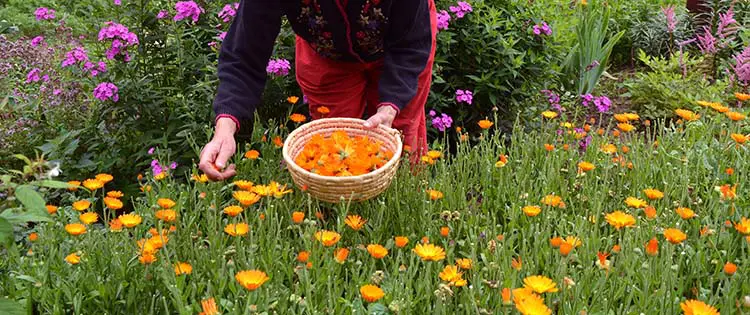
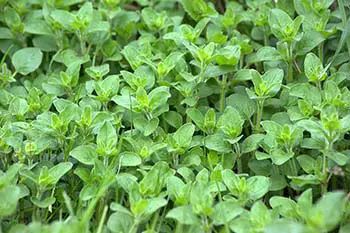


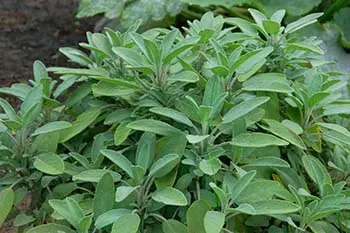


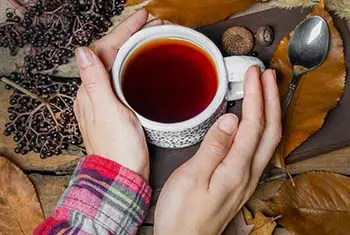
 combine ¼ cup of dried Echinacea, 1 teaspoon of dried lemongrass, 1 teaspoon of dried mint, and 8 ounces of water
combine ¼ cup of dried Echinacea, 1 teaspoon of dried lemongrass, 1 teaspoon of dried mint, and 8 ounces of water








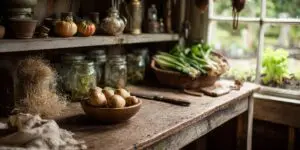


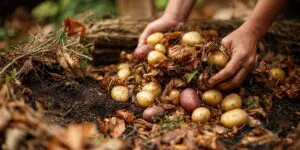
Great Article!